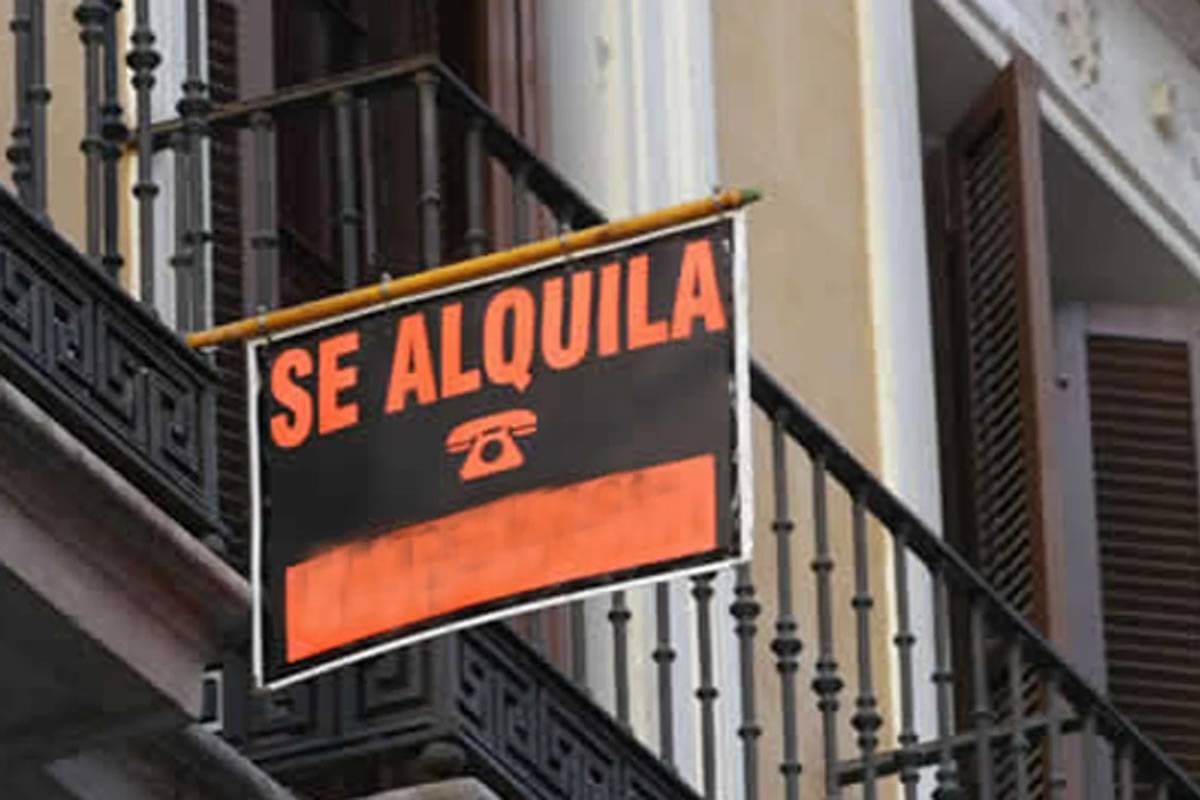Housing crisis continues as two-thirds of people are priced out of the market
- 09-12-2023
- National
- Canarian Weekly
- Photo Credit: Stock Image
Renting a property is becoming increasingly elusive for those earning less than 1,800 euros per month, as landlords are insisting that rent should not exceed 35% of income, something unattainable for two out of three Canary Islands workers, leaving many locals priced out of the housing market.
A recent apartment listing on a Tenerife rental portal exemplifies the growing trend as the advertisement stipulates that prospective tenants must have a monthly income allowing them to comfortably afford the 650 euros rent, equivalent to approximately 35% of a 1,770 euro a month salary. This surge in such demands has become prevalent in long-term rental negotiations, effectively excluding residents earning less than 1,800 euros monthly.
The scarcity of available housing compounds the issue, with an influx of short and medium-term holiday rentals exacerbating the problem. Anecdotal evidence from one landlord reveals the overwhelming response to a recent listing, where he posted: "Apologies if I can't respond promptly, I have received over 300 inquiries for the last rental posted."
Estate agents attribute these stringent requirements to landlord insecurity, particularly since the implementation of Spain's new housing law in May. Landlords have expressed concerns about the law allowing tenants in vulnerable situations to potentially go two years without paying rent.
Chema Blanco, a Tenerife-based real estate agent, notes that the 35% income-to-rent condition has become a standard practice. The demands extend beyond income, requiring solvent guarantors, at least one of whom must own property. The message is clear: "If you cannot meet the conditions, please do not contact us and rent elsewhere. The conditions are non-negotiable."
Blanco warns that these conditions are not isolated, citing an increasing prevalence of abusive clauses in contracts, including additional guarantors, demands for minimum salaries, and stability criteria for guarantors. The housing market in the Canary Islands has become inaccessible for many families due to the perfect storm of a tourist housing boom, continuous price increases, a lack of public housing, and low local salaries.
The tension in the sector has also given rise to numerous scams. Blanco highlights deceptive advertisements offering attractive deals, requiring upfront payments to reserve a property. However, once the prospective tenant starts the paperwork, the advertiser disappears along with the deposited money.
Statistical data reinforces the challenges facing most Canary Islanders trying to secure housing. With the average salary in the Islands around 1,825 euros per month, 30% of that income allows for the rental of just a 43-square-metre property, just over half the size of a standard 80-square-metre home.
Recent studies on salary-to-home purchase ratios indicate that, with the median salary, people can only afford to rent a 45-square-metre property in Santa Cruz de Tenerife, compared to 41 square metres in the province of Las Palmas (Gran Canaria, Lanzarote, Fuerteventura). Nationally, 30% of the average salary (2,033 euros per month) enables the rental of a 54-square-metre property, 26 square metres less than the average home, according to Europa Press.
Considering the landlords' requirement that rent does not exceed 35% of income, earning 1,800 euros is insufficient for a 650-euro rental. To afford a property priced at the current average of 700 euros for a two-bedroom apartment in Tenerife, one needs a monthly income of 2,000 euros. For a property at 900 euros per month, the required income rises to 2,600 euros, amounts that many people cannot afford.
The data also reveals a significant decline in rental listings over the last couple of years. In the central areas of Tenerife's capital and neighbourhoods, only 172 rental advertisements exist, with the majority exceeding 600 euros. The surge in short-term holiday rentals is evident, with over three times the number of available options compared to conventional long-term rentals.
A damning study released last summer highlights the widening gap between rental prices and salaries. Over the past decade, rental costs in the Canary Islands have increased 85%, while salaries have only grown by 6%. The rental market's current state leaves people struggling to secure affordable housing.
As the housing crisis deepens, urgent action is needed to address the growing disparity between income levels and housing affordability for the majority of residents.
Other articles that may interest you...
Trending
Most Read Articles
Featured Videos
TributoFest: Michael Buble promo 14.02.2026
- 30-01-2026
TEAs 2025 Highlights
- 17-11-2025



























































